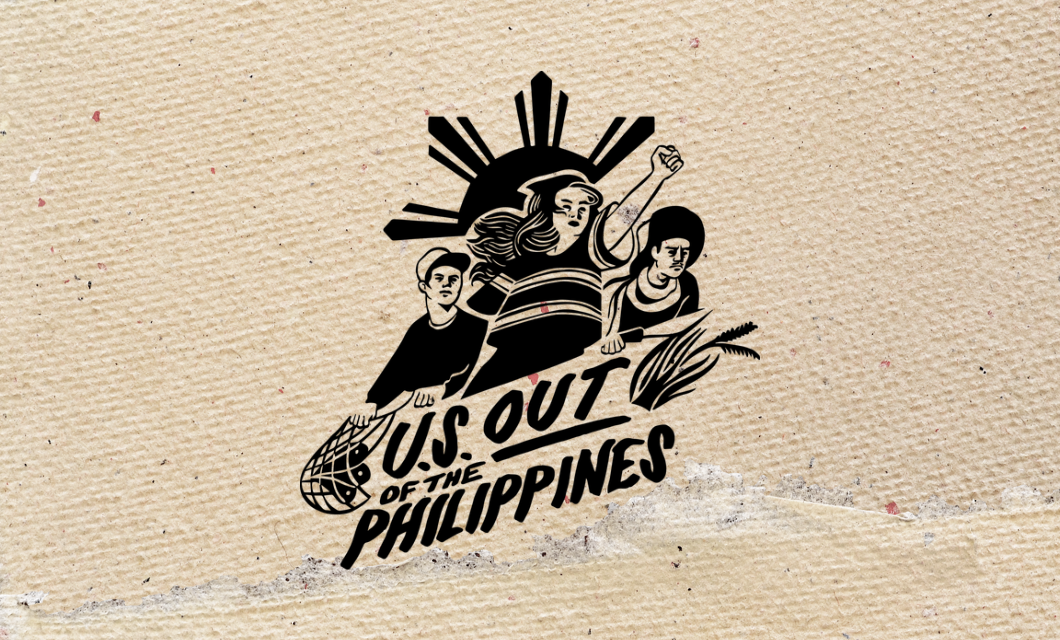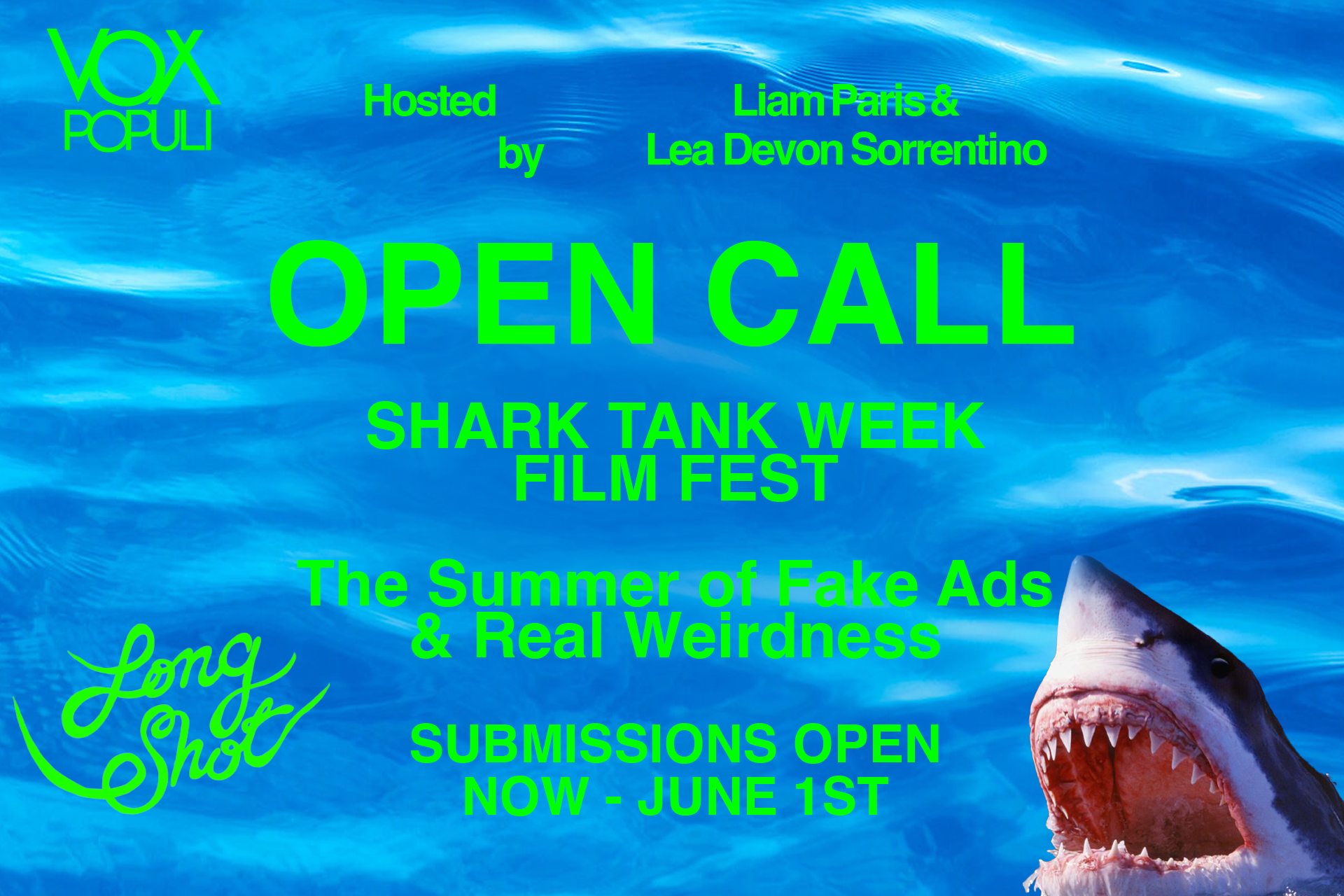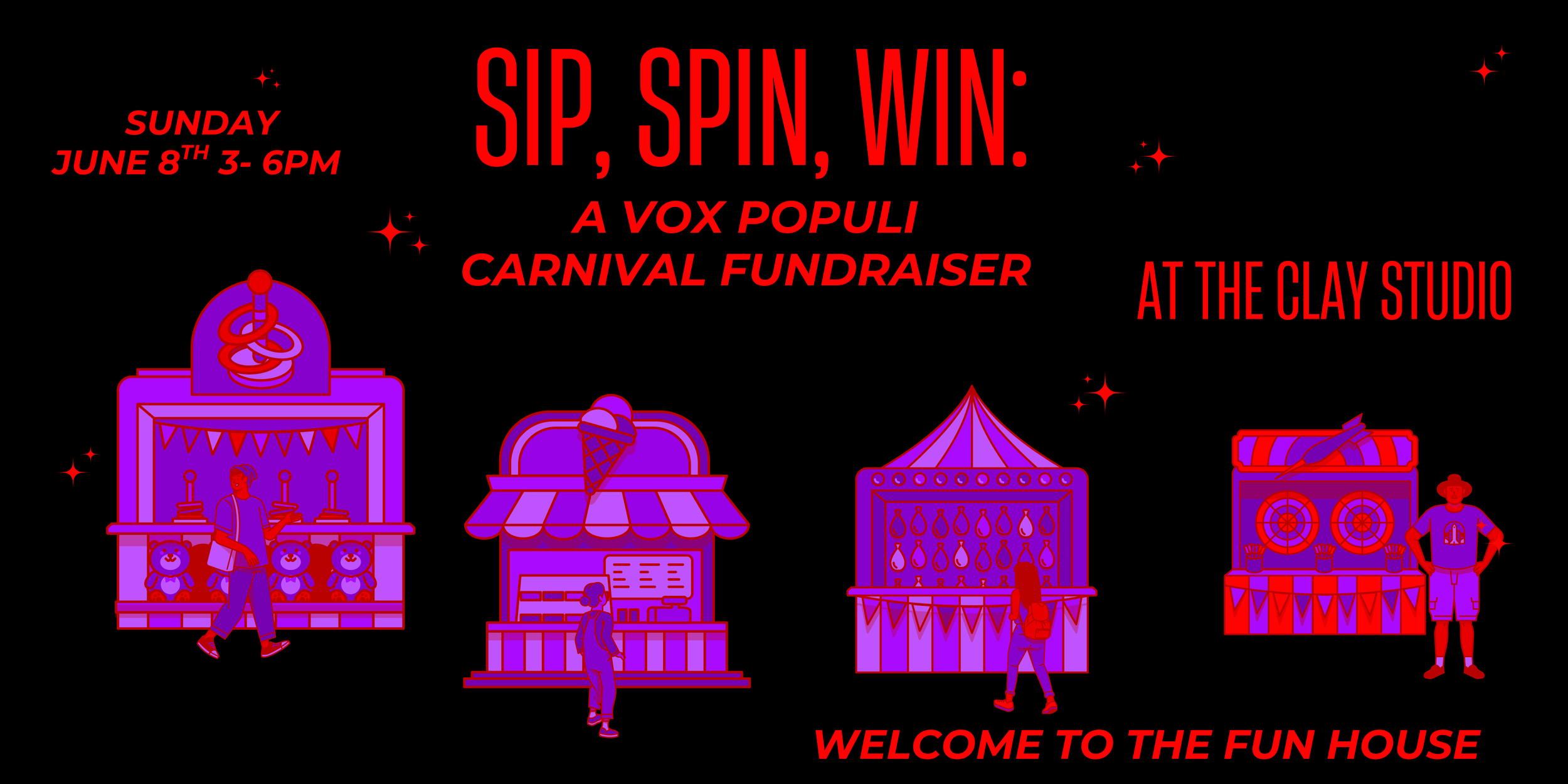SUPPORT VOX!
❤️ ☺️
SUPPORT VOX! ❤️ ☺️

The Zournal of Repeated Things
OLUWAFEMI
Friday, May 2, 2025 – Sunday, June 15, 2025

No Saviors, We Free Ourselves
Presented by Anakbayan Philadelphia
Friday, May 2, 2025 – Sunday, June 15, 2025

Nightlarking
Julia Gould & He-myong Woo
Curated by Cynthia Zhou

hearth
A painting show of works by Evan / Eve Greensweig

🎥🦈 OPEN CALL: SHARK TANK WEEK 🦈🎥
Presented by Long Shot
🦈 Submissions due June 1st

Support Vox! Join us for our Summer Fundraiser!
Current & Upcoming Exhibitions
Friday, May 2nd – Sunday, June 15, 2025
Friday, May 2nd – Sunday, June 15, 2025
Friday, May 2nd – Sunday, June 15, 2025
Friday, May 2nd – Sunday, June 15, 2025
Upcoming Events
Vox News & Updates
🎥🦈 OPEN CALL: SHARK TANK WEEK 🦈🎥
Presented by Long Shot
Screening: Thursday, June 26, 2025 (Fourth Thursday!)
Most likely outdoors at the Philly Rail Park
For Vox Populi’s 20th Annual Juried Show, “First, then, next, finally,” we are looking for artwork that uses sequencing!
Vox Populi Announces Partners for Black Box Presents Program
We are thrilled to share the full lineup of partners for 2025
Fund art in Philadelphia!
Learn more about how you can support our artist-run gallery ⟶






![Black Box Presents: All Mutable -spasm [embodied resistance]](https://images.squarespace-cdn.com/content/v1/643ff7346d0a872ee9f81b9c/1743728709497-QOO60TXPIZE0IA4UKJ62/BlackBoxPresents-WebBanner+%284%29+%281%29.png)

